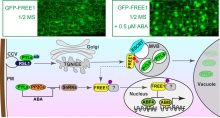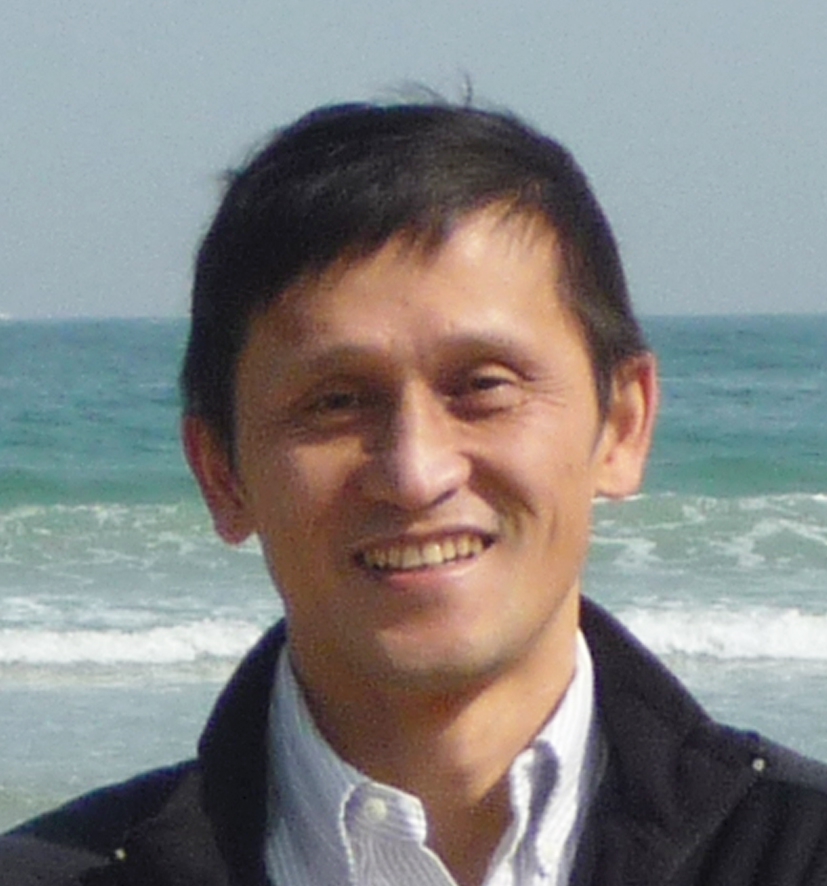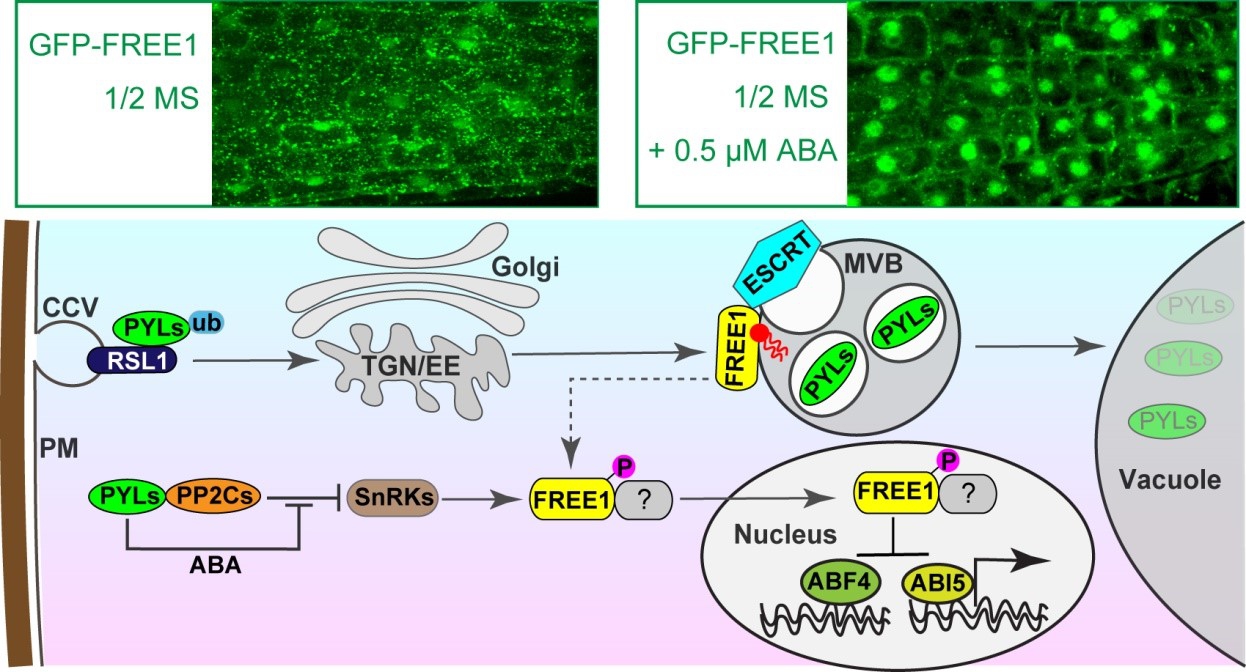News Centre
Scientists Discover How Plant Hormone and Vesicular Transport Regulatory Protein Work Together to Help Plants Cope with Stress
A team of researchers at The Chinese University of Hong Kong (CUHK) and South China Normal University has discovered an important and novel function of the plant vesicular transport regulatory protein FREE1 in the modulation of plant abscisic acid (ABA) signalling in the nucleus. This took place under the guidance of Professor JIANG Liwen, Choh-Ming Li Professor of Life Sciences of CUHK, and Dr. GAO Caiji, Professor at South China Normal University. ABA is one of the most important plant hormones involved in plant developmental processes. This novel finding, recently published in Nature Plant, provides a theoretical basis for improving crop tolerance to environmental stresses through genetic engineering.
Unlike animals, most plants cannot move around to find food, water and choose the optimal environment for living. However, plants have the ability to supress their growth to increase their chances of survival. For example, seed germination will only happen with the presence of water and the size of the stomatal opening is regulated to prevent dehydration. These essential functions are controlled by ABA. For the first time, Prof. JIANG and Prof. Gao’s team has unveiled the relationship between ABA and FREE1, and understood how they affect plants’ growth.
Prof. Jiang’s research team has been devoted to exploring the molecular mechanisms of protein transport and organelle biogenesis for 20 years. In recent studies, they discovered the plant unique vesicular transport regulator termed FREE1 and illustrated its functions in regulating membrane protein transport and autophagic degradation. The relevant findings were published in Current Biology and PNAS, in 2014 and 2015. In this new study, the collaborative team further demonstrated that ABA regulated the phosphorylation and nuclear shuttling of FREE1, which inhibited the transcriptional activation of downstream transcription factors of the ABA signalling pathway in the nucleus. This study first discovered the novel function of plant vesicle transport regulators involved in the regulation of gene expression in the nucleus, and explained that vesicular transport regulators like FREE1 protein can participate in ABA signalling not only in the cytoplasm by regulating the transport of ABA receptors to vacuolar degradation but also in the nucleus to directly regulate ABA signalling at the transcriptional level. These results indicate that the vesicle trafficking pathway and plant environmental response signals have crosstalk at both gene expression and protein transport levels.
This research project is led by Dr. GAO Caiji, currently a principle investigator in South China Normal University. Dr. GAO was a Ph.D. student of Prof. JIANG and a graduate of CUHK. Dr. Gao was selected as a member of China 1000-Talents Plan for young researchers, and was appointed as a professor of South China Normal University in 2016.
Prof. JIANG is currently Choh-Ming Li Professor of Life Sciences of CUHK and Director of the Centre for Cell and Developmental Biology at CUHK. He has been appointed editorial board member of several internationally renowned journals. Graduate students and postdoctoral researchers supervised by Prof. JIANG have received many prestigious awards for their research excellence, with more than 15 of them becoming independent principal investigator in Hong Kong, mainland China, Singapore and the USA.

Schematic diagram of the involvement of the FREE1 protein in the regulation of ABA signalling in plants. The FREE1 protein enters the nucleus in response to the ABA signal (upper panel). The FREE1 protein forms an ESCRT complex that regulates ABA receptor PYLs transport to vacuolar degradation in the cytoplasm, and enters the nucleus to regulate ABA signalling at the transcriptional level (lower panel).


